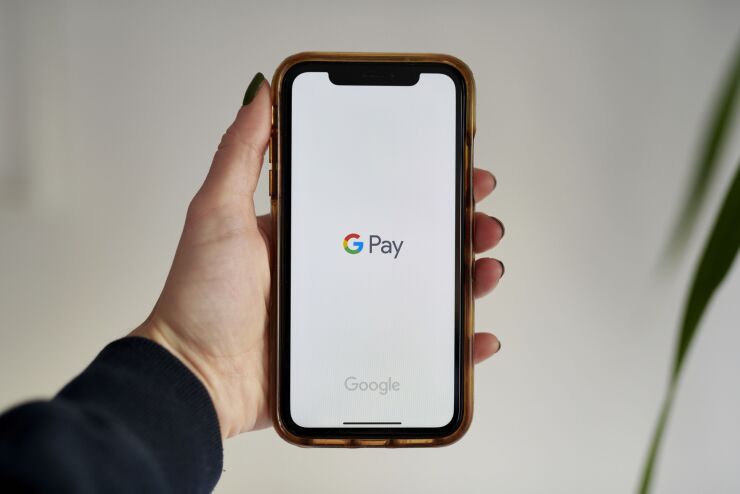Google has hired former PayPal Holdings executive Arnold Goldberg to run its payments division and set a new course for the business after it scrapped a push into banking.
The move is part of a broader strategy to team up with a wider range of financial services, including cryptocurrencies, said Bill Ready, Google’s president of commerce. The business, known for the Google Pay system and mobile wallet, has largely avoided the crypto industry.
The changes follow a major turnabout in October. Google had spent years planning a digital checking and savings service, lining up 11 banking partners for the launch. But that month the company
“We’re not a bank — we have no intention of being a bank,” Ready said in an interview. “Some past efforts, at times, would unwittingly wade into those spaces.”

Given Google’s dominance in search and other online services, it was long expected to shake up the world of finance. But it has little to show for its efforts so far. Google Pay has gained some traction in India, but struggled elsewhere. It lags well behind Apple’s payment platform, and Google hasn’t created its own credit card or financial products the way Apple has.
But Google does have enormous consumer reach and a huge balance sheet. The technology giant takes no fees on transactions with its mobile wallet, and Ready said there are no plans to change that. Google is also working to add more payment features within search and its shopping service. That will help show users “the entire array of financial services out there,” Ready said.
“Our aim is to help create connections,” he said. “We’re not a conflicted party.”
Ready, PayPal’s former chief operating officer, joined Google in 2019 and began overseeing its payments division last year after an executive departure. He recruited Goldberg, who ran PayPal’s merchant business, to become the vice president and general manager for the payments and emerging market efforts — an initiative Google calls Next Billion Users, or NBU.
Ready also is promoting Peeyush Ranjan, a veteran engineer who led efforts to expand Google Pay in India, making him general manager for consumer payments services.
Google debuted its payment app in 2015 and revamped it in late 2020 as a hub for consumers to track expenses and hunt for discounts. At the time, the company shared that the app had 150 million monthly active users globally. But Google’s wallet faces tough competition, even on devices that run its Android operating system. Samsung Electronics Co., the biggest seller of smartphones, has its own payment system.
Tom Noyes, an industry analyst,
As part of the overhaul, Google will focus more on being a “comprehensive digital wallet” that includes digital tickets, airline passes and vaccine passports, Ready said. He didn’t provide an update on the current number of Google Pay users.
The company is integrating payments more tightly with Google’s shopping efforts, such as a feature that shows consumer loyalty cards and personal discounts directly in search results. Google also is trying to position itself as more welcoming to merchants than Amazon.com Inc. In 2020, Google
The lack of commissions on Google Pay is part of the same philosophy. The company is hoping enough people find value in its payment services that they keep searching and buying on Google properties, not elsewhere. “Helping more activity occur on a free and open web — that naturally pays dividends to our overall business,” Ready said.
Tiptoeing into crypto also could help Google entice users. Google has partnered with companies, including Coinbase Global and BitPay, to store crypto assets in digital cards, while still having users pay in traditional currencies.
Ready said Google is looking to do more of these partnership, though the company still isn’t accepting crypto for transactions.
“Crypto is something we pay a lot of attention to,” he said. “As user demand and merchant demand evolves, we’ll evolve with it.”
Goldberg, Ready’s new deputy, is stepping into a role vacated by Caesar Sengupta, a longtime Google manager who left the company last year. Sengupta has since formed a new fintech company, Arbo Works, and hired away several others from Google’s payments team.
Ready considers these departures the normal churn of business. He declined to share staffing numbers, but said the payment division is “growing in a very healthy way.”





